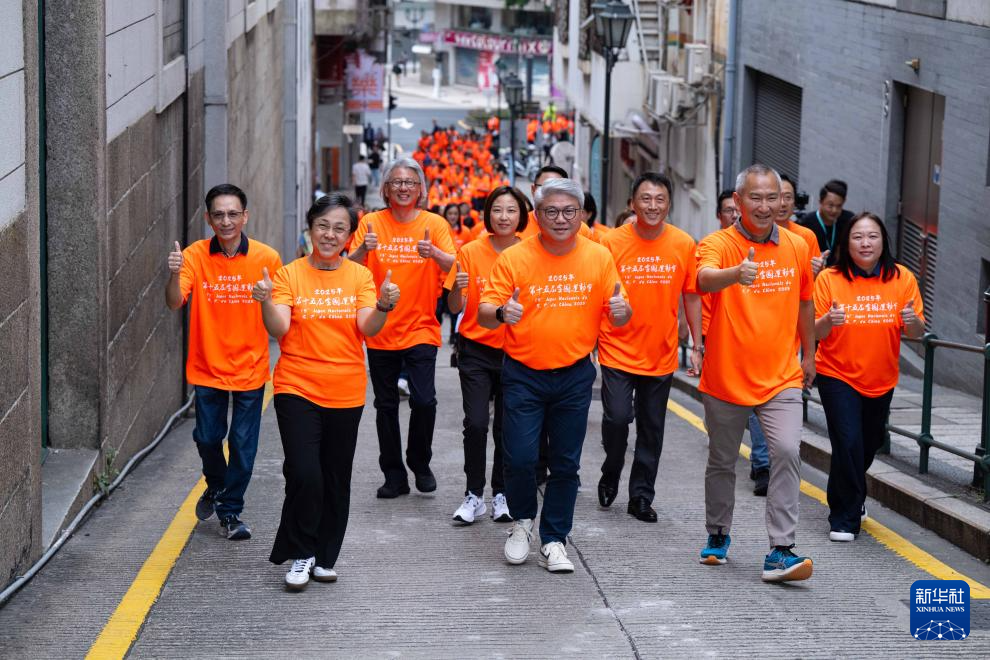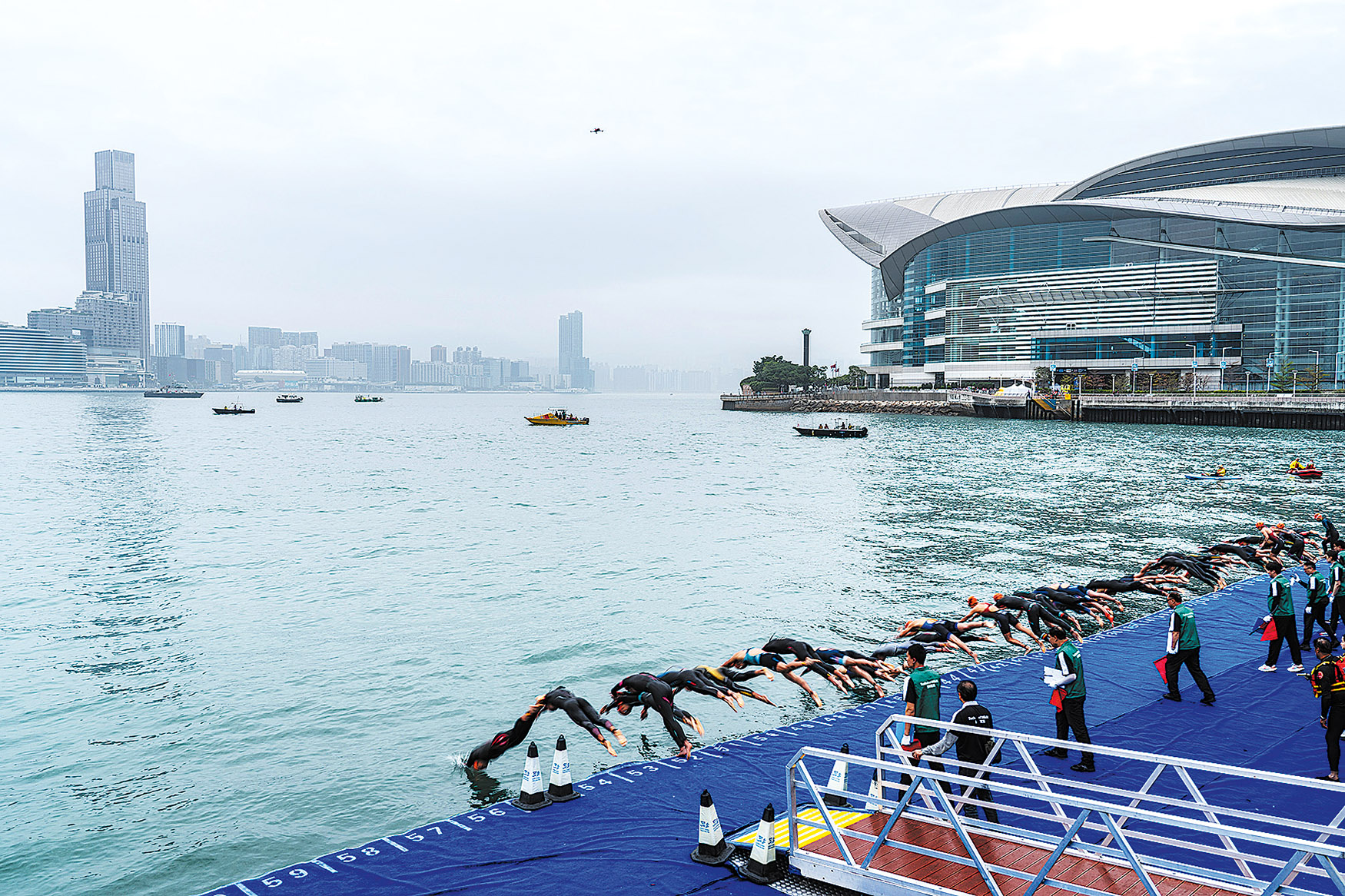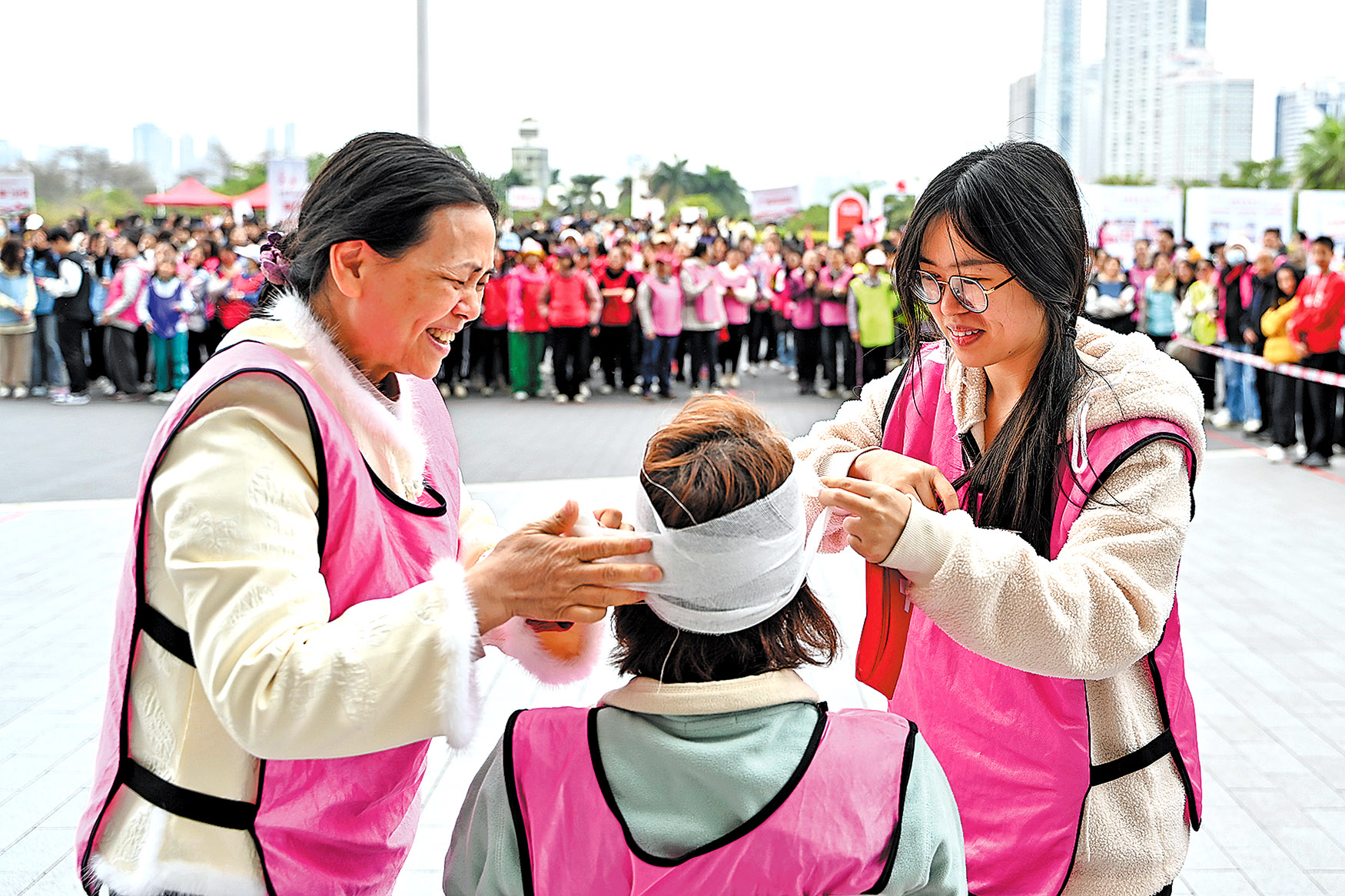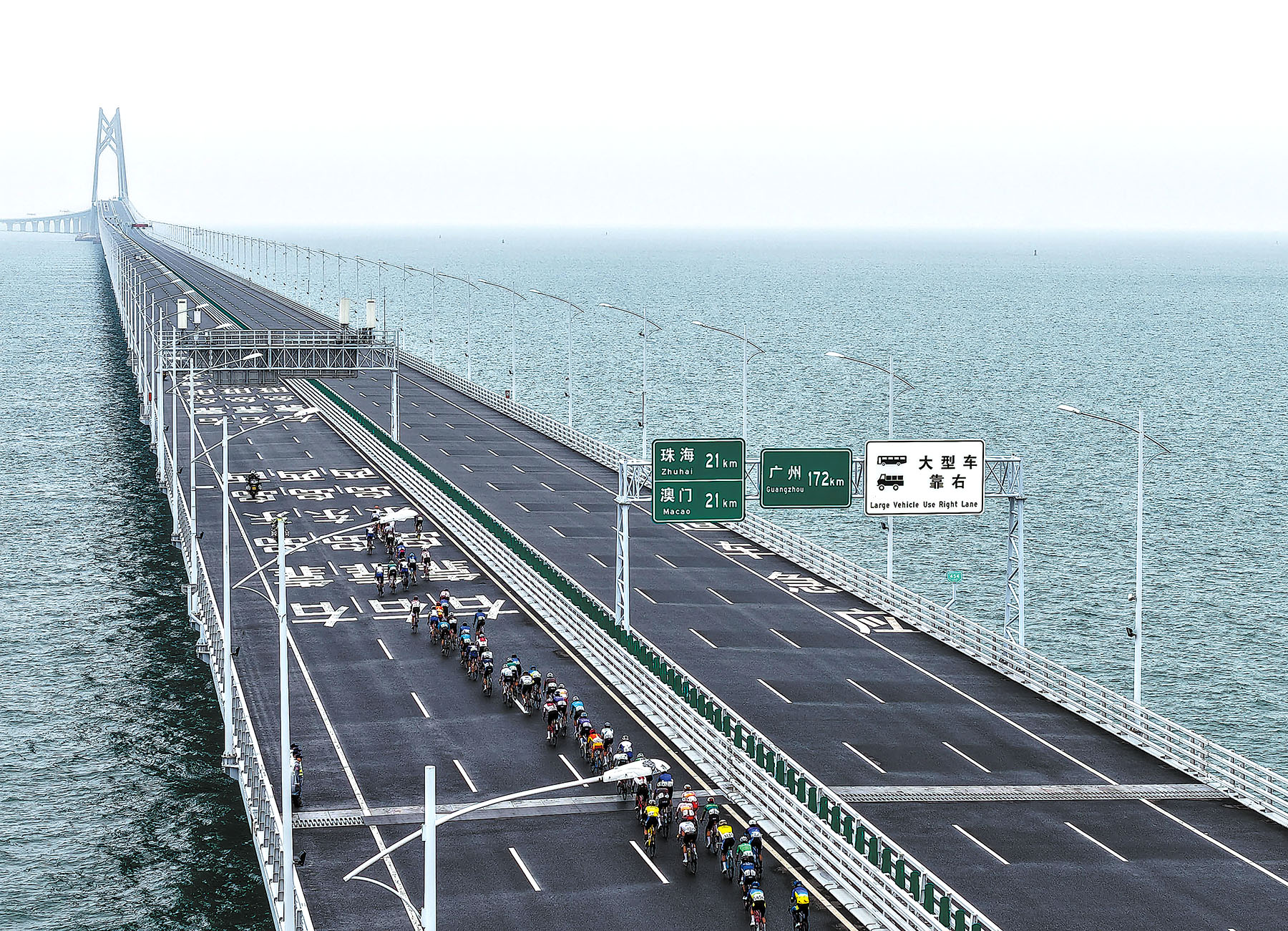Officials say November event will be huge opportunity to integrate Guangdong-Hong Kong-Macao Greater Bay Area

The 15th National Games in November will serve as a pivotal opportunity for integrating the Guangdong-Hong Kong-Macao Greater Bay Area (GBA), National People’s Congress deputies and members of the Chinese People’s Political Consultative Conference National Committee said during the two sessions.
It is the first Games jointly hosted by Hong Kong, Macao, and Guangdong province. It also marks the first time Hong Kong and Macao will host a national-level sports event.
Kenneth Fok Kai-kong, a deputy to the 14th National People’s Congress and vice-president of the Sports Federation and Olympic Committee of Hong Kong, China, emphasized that the event should act as a driving force for the GBA to attract further global capital, technology, and talent.
He proposed that cities within the region should receive tailored support to develop their unique sports specialties. For instance, Hong Kong could aim to become the hub for international sports events, Macao could focus on advancing motorsports, and Foshan and Zhongshan in Guangdong province could, respectively, aim to become a world-renowned martial arts city and an international baseball city.

Furthermore, Fok suggested that the GBA should collectively create branded sports events encompassing such disciplines as basketball, badminton, tennis, rowing, and yachting. By leveraging the momentum of the 15th National Games, the region should actively plan to introduce high-level international events in soccer, basketball, tennis, and other sports, while exploring collaborative mechanisms for hosting world-class sporting events.
“The GBA is one of the most economically vibrant and highly open regions in China, with the potential to build a comprehensive sports industry chain,” he said.
The inauguration of the 28-hectare Kai Tak Sports Park on March 1 introduced a cutting-edge 50,000-seat stadium, establishing itself as Hong Kong’s largest sports facility to date. This milestone is poised to alleviate the city’s persistent shortage of high-profile venues.
It will be used to host competitions at the 15th National Games.
“Beyond improving hardware and infrastructure, it is crucial to capitalize on Hong Kong’s role as a bridge between domestic and international networks to foster the development and fortification of a range of Chinese sports event brands. This initiative will enhance China’s presence on the international sports landscape,” said Fok.
Zhang Xiaodong, a member of CPPCC National Committee and president of the Chinese Yachting Association, highlighted that yachting has a longer history in Hong Kong than in the Chinese mainland.

She said she hoped that the GBA’s joint hosting of the National Games would elevate public awareness of yachting and encourage more people to engage in the sport.
Tony Yue Kwok-leung, a member of the 14th National Committee of the CPPCC and chairman of the Hong Kong China Table Tennis Association, emphasized the notable enhancement of integration between Hong Kong and other GBA cities in recent years.
He pointed out that this progress has been driven by the completion of transportation infrastructure, effectively turning the idea of a “one-hour living circle” between Hong Kong and mainland GBA cities into a practical and achievable reality.
“Every weekend or holiday, many Hong Kong residents travel to Shenzhen and other GBA cities for shopping and leisure,” he said.
“Children in Hong Kong often accompany their parents to Shenzhen for weekend trips, gaining early exposure to the GBA. Additionally, there are numerous school exchanges and collaborative initiatives across the region.”
At this point, he emphasized that hosting the 15th National Games presents a valuable opportunity to enhance mutual understanding within the GBA and explore new avenues for cooperation.
“I hope the Games will serve as a lasting platform for collaboration. In the future, GBA cities could jointly host concerts and other cultural events,” Yue added.

Johnny Ng Kit-chong, a CPPCC National Committee member, highlighted the Games’ potential to create volunteer opportunities, fostering deeper exchanges among GBA youth.
“Sports can enhance people’s sense of national identity and patriotism. Therefore, we should strive to encourage widespread participation in sports among the youth of Hong Kong and Macao,” said Andy Sze Wei-hung, a CPPCC National Committee member and president of the Basketball Association of Hong Kong, China.
He emphasized leveraging the Games to establish a “Greater Bay Area Athlete Identity Recognition System”, enabling athletes to compete seamlessly across GBA cities.
Additionally, he proposed expediting the approval process for athletes from Hong Kong and Macao to participate in domestic and international competitions, such as a “Greater Bay Area Joint Team”, while integrating young sporting talent from both special administrative regions into the national youth training system for further development.
Sze also highlighted the economic potential of integrating and reforming the sports industry in the GBA.
He noted that the GBA sports industry, now valued at over 700 billion yuan ($96.4 million), is expected to be worth more than 1 trillion yuan.
He said this growth will serve as a powerful driver for investment, infrastructure development, employment, and the overall business environment, further solidifying the region’s economic momentum.


